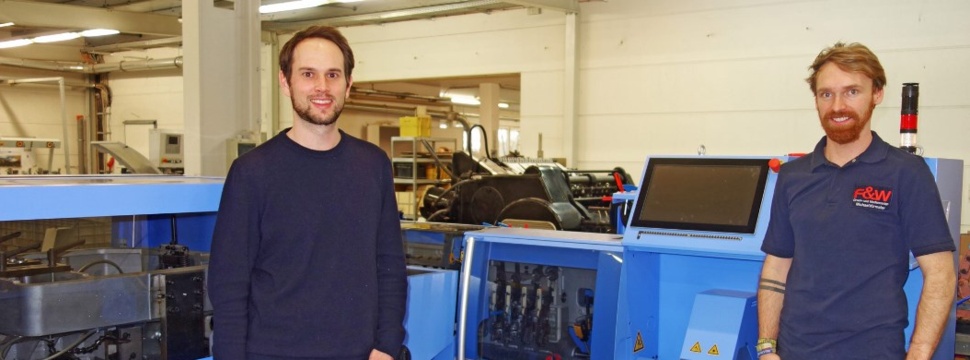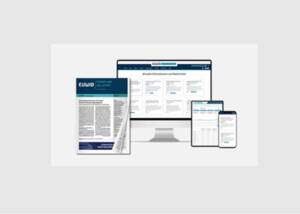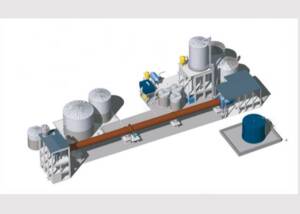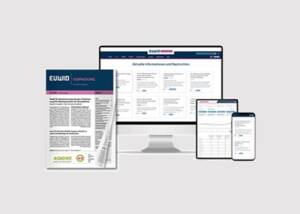With a New Prinova Into the Saddle Stitcher Renaissance
News General news
Because its user-friendly touchscreen and motion control technology with servo drive of each individual feeder provide greater automation and the ASIR PRO camera system ensures great production reliability, F&W Druck und Medien in Kienberg, Germany, recently put a new Prinova saddle stitcher from Muller Martini into operation.

When F&W decided eight years ago to bring the adhesive binding, which had previously been outsourced to external partner companies, in-house, softcover products experienced a marked upswing at the modern plant in Kienberg on Lake Chiemsee in southern Bavaria. And today, at 60 percent, they account for the largest share of the sales volume of the family company founded three decades ago by Fritz Föttinger and Lothar Wild. But more recently, saddle-stitched printed products (commercial work, production and sales brochures, periodicals), which account for 30 percent at F&W, have picked up again, according to Lorenz Wild.
"You can definitely talk about a renaissance of saddle stitching," says the managing director responsible for the technical aspects of the company and son of the company founder, who together with his brother Benedikt, Ajtha Föttinger and Michael Kirmaier forms the second generation of F&W. According to Lorenz Wild, this is due in no small part to the fact that some magazines are now saddle stitched instead of perfect bound for cost reasons. However, saddle-stitched magazines, brochures and journals have changed significantly in parallel with this development.
"Increasingly in demand are products in the high-quality range with finishes, six- to eight-page covers and inside flap pages," says Lorenz Wild. In addition, customers are increasingly ordering specialized, personalized variants of the same product, some of which contain seasonal content. Which at the same time means that print runs are constantly getting smaller. "Whereas we used to have a 64-page brochure, for example, we now produce two 32-page products for the same customer, with different dealer addresses on the covers and printed in different languages. The complexity of production has increased greatly."
Good experience with a BravoPlus
And so has the challenge of finishing – a not insignificant criterion for investing in a new saddle stitcher. According to Lorenz Wild, there are two primary reasons why F&W chose Muller Martini for the Prinova, which was relaunched last fall. "Firstly, we are very satisfied with our BravoPlus, which was commissioned in 2006 and recently underwent an extensive inspection. The fact that we only have a Muller Martini service technician in house once a year is proof of how smoothly the BravoPlus runs – which we definitely also see as a compliment to the manufacturer."
The same also applies to the Ventura MC 200 book sewing machine installed three years ago. F&W is particularly impressed by its operating concept with a clear touchscreen, which brings us to Lorenz Wild's second decisive argument for the new investment: the innovative features of the Prinova. Because the new saddle stitcher from Muller Martini also has a large touchscreen on which all settings can be made centrally instead of selectively. The new user interface with its context-dependent displays and innovative operating concept increases user-friendliness – which in turn shortens processes. The fact that the Prinova now has individual feeders with servo drives further optimizes automation, especially in terms of faster changeovers.
The new Prinova, which has six flat pile feeders, a cover feeder and a Palamides Delta 502 bundle banding delivery, started operation at the end of January – parallel to the BravoPlus, which continues to be used as a backup machine to avoid a bottleneck. The run length of the products stitched for customers mainly in southern Germany and Austria ranges from 300 to 300,000 copies per job – which are also regularly produced in A5 two-up. The average run is 3000 to 5000 copies per title.










